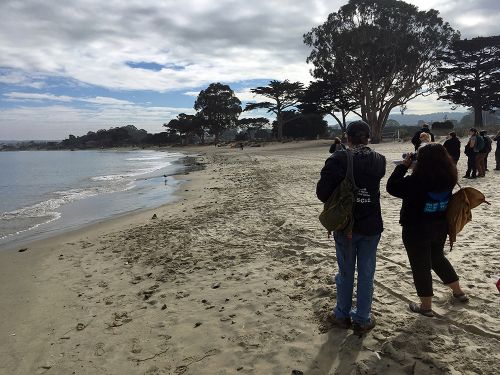Oilapalooza! An Oiled Wildlife Response Workshop
OCT. 20, 2017 — California’s Oiled Wildlife Care Network (OWCN) is world renowned for its response, rescue, rehabilitation and research capabilities. This week (October 18-19), OR&R’s Emergency Response Division was invited to participate in OWCN’s eighth Oilapalooza Workshop to give a talk on online tools for spill response.
This year 170 attendees representing 48 different wildlife rehabilitation organizations and primary care facilities across the state participated in the event. This workshop is a regular training and team-building opportunity for OWCN’s members ranging in size from a handful of staff and volunteers to long-established facilities like SeaWorld. All have oil spill training and are prepared to respond, but some have limited experience with actual oil spills.
Oilapalooze included a wide variety of talks on rehab and oil spill-related topics, including "Distribution of Guadalupe Fur Seals (Arctocephalus townsendi) off the California Coast," "Use of Technology for Improving Wildife Recovery during Oil Spills," "Evaluation of Unmanned Aerial Vehicles for Detection of Oiled Wildlife," "Inland Oil Spills: Species Data & Implications for Wildlife Responders," "Predator Consumption of Forage Fish in the California Current" and "Movement Patterns of Oiled Brown Pelicans (Pelecanus occidentalis) Following Rehabilitation."
Attendees also had the opportunity to explore hands-on laboratories on topics ranging from pelagoic bird necropsy and sea otter necropsy, to clinical pathology and sea otter reconaissance. A new series to the workshop this year included hands-on "101" labs to provide cross-training for participants to learn how to work with new species. The "101" labs included terrestrial mammals, terrestrial (non-raptor) birds, raptors, herptiles, passerines and more.
For more information, contact Jordan.Stout@noaa.gov.
 An official website of the United States government.
An official website of the United States government. 
